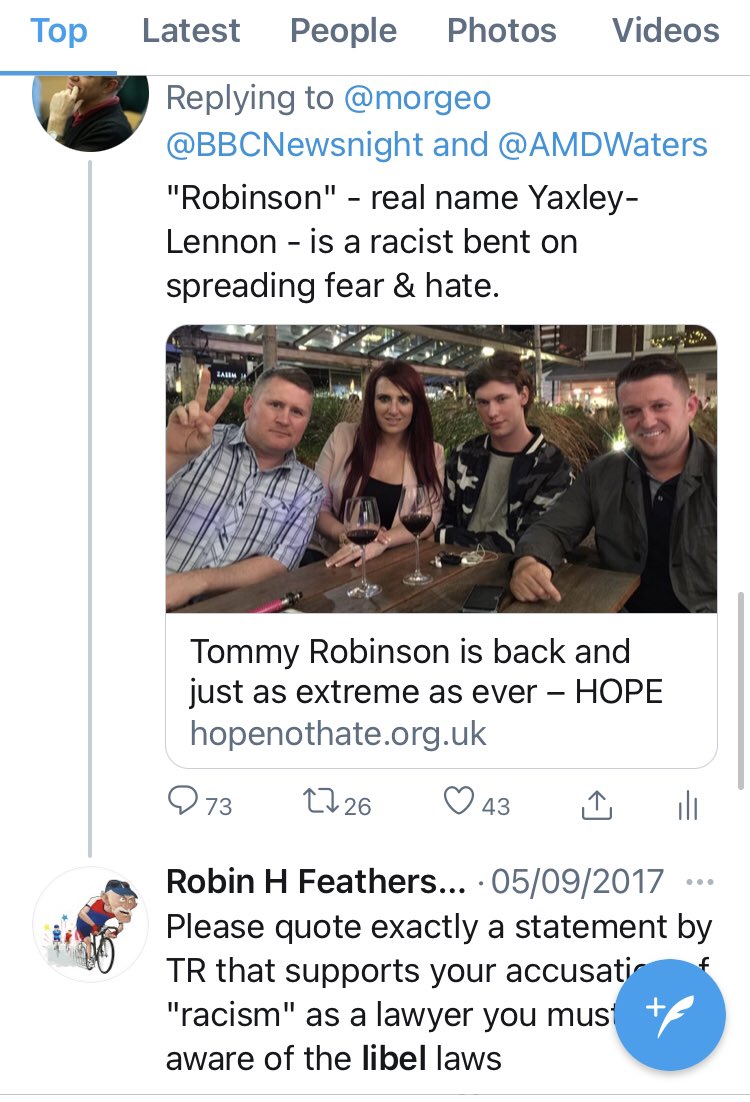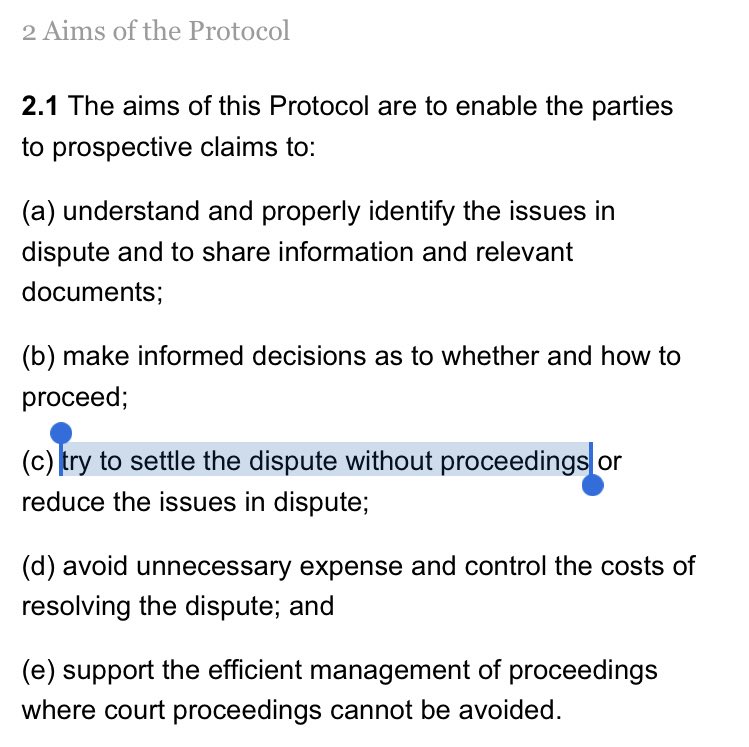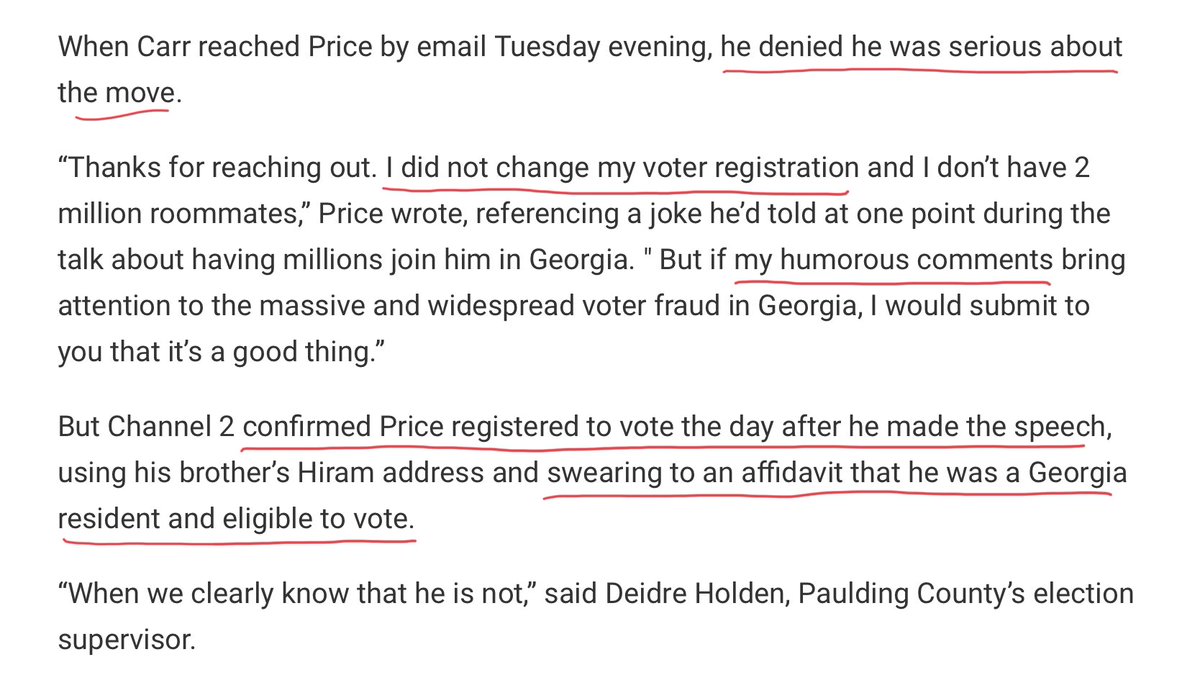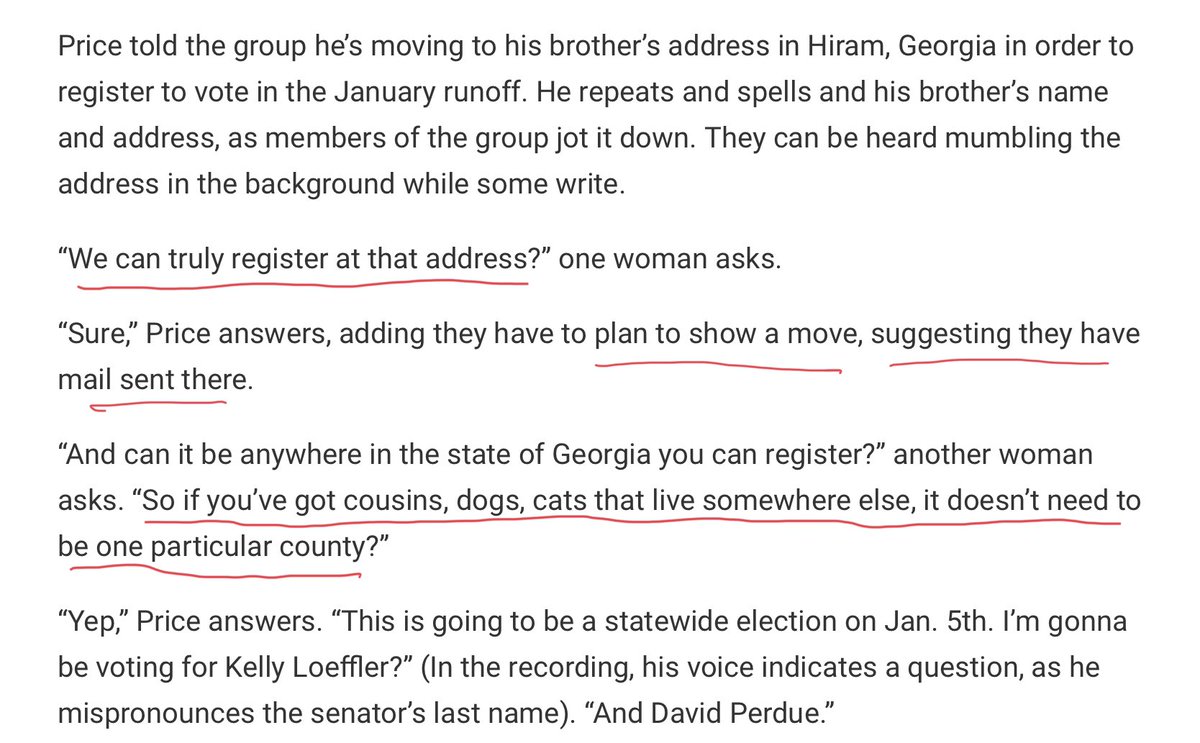
How to avoid (successful) accusations of defamation on Twitter. A few thoughts from someone who is NOT a libel lawyer, but does say very critical things about named individuals. 1/

Reminder: https://t.co/KpWzq0aF8C is run by Arron Banks who called for British mosques to be demolished. They\u2019ve always been openly racist. https://t.co/n8uppHUqQ5
— Simon Cox (@SimonFRCox) October 9, 2019
Jenrick\u2019s corruption continues https://t.co/sqm7CMZjSD
— Simon Cox (@SimonFRCox) November 11, 2020


Because you may have it wrong, or they may have misunderstood you. 14/
More from Law
Holy Shit. Florida GOPer caught on tape telling fellow FL GOPers to make false voter registrations in Georgia so they could vote to save Loeffler and Perdue. He in fact DID register in Georgia and is now under investigation.
2/ A pretty kickass reporter, Nicole Carr, recorded the video before the guy took it down. When she confronted him he insisted it was all a joke and of course he didn’t register in Georgia. But she checked and he had.
3/ This is Nicole Carr ...
4/ amazing. Here’s where she catches him 🤣🤣🤣🤣🤣🤣🤣🤣🤣🤔🤔

5/ Also on the video you’ve got these ladies saying, hey wait, this can’t really be legal can it? And he’s like, yeah totally cool. Then he advises on how to create a backstory for the fake move.

2/ A pretty kickass reporter, Nicole Carr, recorded the video before the guy took it down. When she confronted him he insisted it was all a joke and of course he didn’t register in Georgia. But she checked and he had.
3/ This is Nicole Carr ...
\u201cIf that means changing your address for the next two months,so be it.I\u2019m doing that. I\u2019m moving to Georgia.\u201dOur 6 investigation reveals deleted video-a FL attorney telling GOP members how to move to GA,vote in runoffs. It\u2019s illegal.There\u2019s more,& an investigation @wsbtv #gapol pic.twitter.com/or2PgWQrT1
— Nicole Carr (@NicoleCarrWSB) December 2, 2020
4/ amazing. Here’s where she catches him 🤣🤣🤣🤣🤣🤣🤣🤣🤣🤔🤔

5/ Also on the video you’ve got these ladies saying, hey wait, this can’t really be legal can it? And he’s like, yeah totally cool. Then he advises on how to create a backstory for the fake move.



















